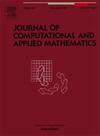A discrete-time queue with service time adjustments and general retrial times
IF 2.1
2区 数学
Q1 MATHEMATICS, APPLIED
Journal of Computational and Applied Mathematics
Pub Date : 2025-03-05
DOI:10.1016/j.cam.2025.116605
引用次数: 0
Abstract
This paper examines a discrete-time retrial queueing system where incoming customers can either choose a last-come, first-served (LCFS) discipline or enter an orbit. It accounts for the possibility of varying service times, which follow an arbitrary distribution, and the retrial times are also governed by an arbitrary distribution. The underlying Markov chain of the system has been analyzed, leading to the derivation of the generating function for the number of customers in both the orbit and the overall system, along with their expected values. The paper also establishes the stochastic decomposition law and, as an application, provides bounds for the difference between the steady-state distributions of the system in question and its standard equivalent. Recursive formulas for determining the steady-state distribution of customers in the orbit and the system are presented. The paper derives the distribution of the time a customer spends at the server and, consequently, the distribution of service times subject to possible variations. A detailed analysis of the time a customer spends in the orbit is also conducted. Finally, numerical examples are included to demonstrate how key parameters impact various system characteristics, with the main contributions of the research summarized in the conclusion.
具有服务时间调整和一般重审时间的离散时间队列
本文研究了一个离散时间重审排队系统,该系统中进入的顾客可以选择后来后到,先服务(LCFS)规则,也可以进入一个轨道。它考虑了服务时间随任意分布而变化的可能性,重审时间也受任意分布的支配。分析了系统的底层马尔可夫链,推导出轨道和整个系统中客户数量及其期望值的生成函数。本文还建立了随机分解定律,并给出了系统稳态分布与其标准等效分布之差的界。给出了确定轨道和系统中用户稳态分布的递推公式。本文推导出顾客在服务上花费的时间分布,从而推导出服务时间受可能变化影响的分布。对客户在轨道上花费的时间也进行了详细的分析。最后,通过数值算例说明了关键参数对系统各特性的影响,并在结论部分总结了本研究的主要贡献。
本文章由计算机程序翻译,如有差异,请以英文原文为准。
求助全文
约1分钟内获得全文
求助全文
来源期刊
CiteScore
5.40
自引率
4.20%
发文量
437
审稿时长
3.0 months
期刊介绍:
The Journal of Computational and Applied Mathematics publishes original papers of high scientific value in all areas of computational and applied mathematics. The main interest of the Journal is in papers that describe and analyze new computational techniques for solving scientific or engineering problems. Also the improved analysis, including the effectiveness and applicability, of existing methods and algorithms is of importance. The computational efficiency (e.g. the convergence, stability, accuracy, ...) should be proved and illustrated by nontrivial numerical examples. Papers describing only variants of existing methods, without adding significant new computational properties are not of interest.
The audience consists of: applied mathematicians, numerical analysts, computational scientists and engineers.

 求助内容:
求助内容: 应助结果提醒方式:
应助结果提醒方式:


